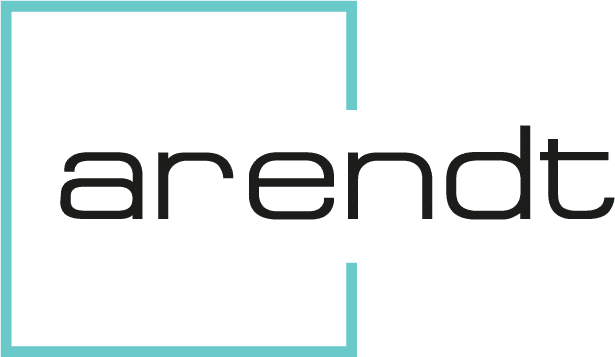Taxation is one of the fundamental aspects of Luxembourg's economic system. Known for its robust economy and favorable tax environment, Luxembourg has developed a sophisticated tax system that attracts both individuals and businesses.
Here you'll find an overview of taxation in Luxembourg and the different types of tax that apply to individuals, the main one being income tax.
Personal income tax in Luxembourg
Who pays income tax in Luxembourg?
In Luxembourg, individuals are liable for income tax whenever they receive income, regardless of category or method of collection. However, according to the latest income tax scale, individuals earning less than 11,265 euros are not liable for tax.
Above this income level, all employees and pensioners are liable for income tax, regardless of whether they are resident or non-resident. They must file an annual tax return with the tax authorities if the household receives taxable income in excess of 100,000 euros a year, or if it receives income from different sources.
Find out more about Luxembourg personal income tax returns.
How much is income tax in Luxembourg?
Luxembourg has a progressive income tax system. It is calculated according to the amount of income received and tax deductions.
Income tax rates range from 0 to 42%. The highest bracket of 42% applies to income in excess of 200,004 euros a year.
The Fonds pour l'Emploi rate increase raises the overall effective rate to a maximum of 45.75%, for incomes of €200,005 or more.
From January 1, 2023, in response to inflation, a "business tax credit" will apply to all residents and cross-border workers. It is paid directly into monthly salaries and pensions.
Use our integrated tax calculator below to estimate your final tax and net income, based on your gross income and family situation.
Anticipate your income tax in Luxembourg
Got a job interview or salary negotiation coming up? Calculate your net income, after deduction of taxes.
Net salary principle
In Luxembourg, your employer deducts income tax directly from your salary.
This means that at the end of the month, you will receive a net salary, after deduction of social security contributions and your estimated income tax.
What's the difference between gross and net salary? What salary levels are available in Luxembourg?
Taxation and payment of income tax at source
Income tax in Luxembourg is deducted directly at source on the basis of a tax form issued annually by the tax authorities. This tax form determines your tax class according to your family situation and status.
Employees and pensioners pay their income tax directly at source. This means that your employer pays you a net salary each month , less the amount of income tax due.
Your employer calculates your income tax on the basis of a tax deduction slip, issued individually by the Luxembourg tax authorities. It then deducts the tax from your salary or pension.
Please note that even if salaries are taxed at source, you must still declare all your income to the tax authorities once a year. See below.
Principle of the Luxembourg withholding tax form
In Luxembourg, a tax card or "fiche de retenue d'impôt" is issued for each job or pension.
Updating the withholding tax form
The withholding tax form is systematically drawn up by the tax authorities, who send it to the taxpayer every year. In the event of a change in the taxpayer's situation, such as a change of job, retirement, marriage, birth of a child, etc., the taxpayer receives an updated withholding tax form.
All withholding tax forms are sent by post to the taxpayer's home address. On receipt, you must forward it to your employer for calculation of your withholding tax.
Didn't receive anything? Contact your local RTS office, depending on where you live.
Who needs a tax form?
Anyone engaged in a professional activity must have a withholding tax form. However, in principle, a withholding tax slip is not required in the following cases:
- pupils or students working during the school vacations, trainees,
- partially for all other casual workers.
Your first job in Luxembourg? You will receive your tax card as follows:
- If you are a resident and an employee who is a resident taxpayer, you will receive your tax card directly, without any action on your part. This is because the tax authorities issue the tax card after your new employer has affiliated you to the CCSS. You will receive your tax card within a maximum of 30 working days.
- If you are an employee and a non-resident (frontier worker), you must request your tax withholding slip as soon as you start work. To do so, you must contact the non-resident RTS office in Luxembourg. In subsequent years, you will automatically receive a form to complete and send to us.
What should I do with my tax deduction slip or tax card?
As soon as you receive your tax card from the tax authorities, don't forget to pass it on to your employer. This tax deduction card enables your employer to identify the tax class to which you belong. This will enable them to calculate and deduct your tax directly at source.
In the absence of a withholding tax form, the employer arbitrarily applies the most onerous tax class and withholding tax rate. The rate will only be adjusted on receipt of the tax form. It is therefore important that your employer receives the tax card as soon as possible.
Other taxes payable by individuals in Luxembourg
Excise duties on certain products
Excise duties are levied on a number of products. In particular, tobacco, alcohol, fuel and heating oil are taxed on purchase.
The merchant collects these taxes on delivery of products subject to excise duty. These are included in the posted prices and will be passed on to the authorities by the merchant.
Property tax on buildings in Luxembourg
Owners of built or unbuilt property must pay property tax to the relevant local authority. It is payable annually to the commune of residence.
This property tax will be reassessed in 2023. It is now calculated on the basis of the building potential of the land concerned, multiplied by a tax rate set by each commune.
People who own their own home benefit from an allowance of 2,000 euros on the base value.
You'll find a property tax simulator here.
Value Added Tax - VAT
VAT is a tax levied on goods and services. The standard rate of VAT in Luxembourg is 17%. However, certain goods and services may be subject to different rates, such as the reduced rate of 8% for certain foodstuffs and non-alcoholic beverages. Necessities benefit from a lower rate, depending on the type of product.
It is the final consumer who pays value-added tax on the products he or she consumes. The company that collects it then passes it on to the authorities.
VAT is included in the price displayed, or must be added in the case of a price displayed exclusive of tax (HT).
Wealth tax in Luxembourg
In Luxembourg, there is no wealth tax for individuals. This tax was abolished in 2006.
Companies, on the other hand, are subject to a wealth tax. Find out more about corporate taxation in Luxembourg.
Wealth management and tax optimization in Luxembourg
Luxembourg is renowned for its wealth management. Banks and family offices offer a full range of financial services and investment instruments to help you grow your wealth in the most tax-efficient way.
Wealthy individuals can benefit from wealth planning and wealth structuring solutions.
Be careful, however, to comply with tax regulations. Individuals, like companies, must fulfill their obligations to declare their income in Luxembourg and meet filing deadlines.
Failure to comply with tax obligations may result in penalties and other legal consequences.
Calling on tax experts or chartered accountants can help you ensure that your investment strategies are compliant and optimize your tax planning.
New to Luxembourg? Here are a few essential points of reference on taxation in Luxembourg.
Silver partner





